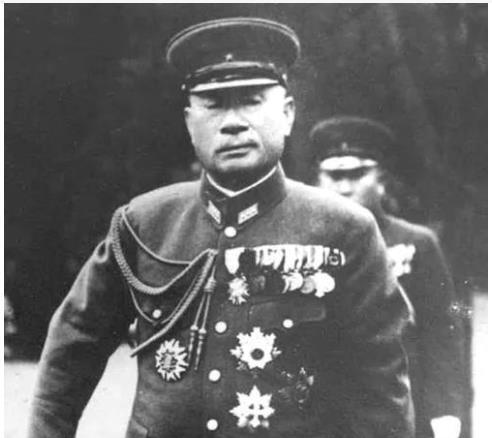The long-form series "Deep Blue Sea: The Beginning and End of the American Pacific War in Japan in World War II" is the 09th article
The Japan-U.S. peace talks lasted from February to June, and the two sides tested and quarreled with each other, and after four months, there was no sign of reaching an agreement.
At this time, the world pattern has undergone a sudden change. On June 22, 1941, Hitler invaded the Soviet Union and the Soviet-German War broke out. At this time, both Japan and the United States are considering the next step of the situation, and the Japan-US talks are suspended.
When Foreign Minister Hiroshi Matsuoka heard the news of the outbreak of the Soviet-German war, he was extremely excited. Within minutes of learning of the outbreak of the Soviet-German War, he called the Palace Minister, Marquis Kido, and asked to see the Emperor. Less than an hour later, Matsuoka was granted permission. As soon as Matsuoka saw the emperor, he could not wait to ask the emperor to approve the Japanese invasion of Siberia and postpone the southward advance. The Emperor was very surprised. Facing Matsuoka's determined eyes, the Emperor fixed his mind and told Matsuoka that he should discuss with Prime Minister Konoe at this time.

On June 25, Prime Minister Konoe convened a liaison meeting of cabinet ministers and senior army and navy admirals, which focused on the national policy of the Japanese government after the outbreak of the Soviet-German war. At this liaison meeting, although the topic of discussion was heavy, the atmosphere was very lively.
Foreign Minister Matsuoka spoke first, and he made his point straight. It is required to suspend the southward advance and adopt the northward expansion policy in a timely manner. After his speech, his views were unanimously opposed by the military. Hideki Tojo was even more tit-for-tat, arguing that Japan must move south, and that it would be impractical to move north. Finally, Foreign Minister Matsuoka said helplessly: "If Germany destroys the Soviet Union, we will not be able to enjoy it." ”
In the end, the decision was left to Prime Minister Fumimaro Konoe. He had been silent until now, listening to others speak. Seeing that everyone had finished speaking, he was also a little helpless. Although he has always disagreed with the southward march, he cannot do anything in the face of the opposition of the vast majority of the participants. Finally, he said that he agreed with the High Command. In this way, the plan to march south was initially approved by the Japanese government, and only the emperor finally approved it.
Matsuoka was dissatisfied with Prime Minister Konoe's performance. The contradiction between the two gradually intensified.
On July 2, 1941, the Imperial Council approving the plan to advance south was convened. The conference hall is lined with two long tables and brocade. The participants sat precariously on either side of the table. When the Emperor entered the conference hall, all stood up and saluted. Although the emperor was dressed in military uniform, he did not look mighty.
The main members of the Imperial Council were those who participated in the Liaison Meeting on 25 June. At such meetings, the Emperor has always been silent and listens to explanations of the policies under consideration.
The meeting officially began, and Prime Minister Konoe stood up first and bowed deeply to the Emperor. He then read out a document entitled "Outline of National Policy in the Present Situation." This is the Southward Expansion Plan.
After the reading, Chief of Staff Sugiyama Moto said he agreed to go south. But he added: "However, if the development of the German-Soviet war situation is beneficial to the Empire, I think we should also solve this problem by force to ensure the security of the Empire's northern borders." ”
Admiral Tsutomu Nagano, commander-in-chief of the Naval Command, also believed that although it was necessary to take risks, it was necessary to go south.
At this point, the Speaker of the Privy Council asked: "What is the realistic possibility of obtaining Indochina by diplomatic means?" ”
Foreign Minister Matsuoka replied: "Diplomatic measures will not succeed. After saying that, he reiterated his views at the liaison meeting the other day.
However, Matsuoka's opposition at this time seemed so weak that in the support of the crowd, the Emperor took up the imperial seal and solemnly stamped it on the document presented to him by the Prime Minister. In this way, the southward policy officially became Japan's national policy.
The document clearly states:
No matter how the world situation evolves, the empire will take the construction of the "Greater East Asia Co-Prosperity Sphere" as the policy, advance toward the goal of handling China's affairs, and step forward to the south in order to establish a foundation for self-preservation and self-defense. To this end, he did not hesitate to fight a war against the United States and Britain. In the north, if the Soviet-German war progressed in the interest of the Empire, the northern problem was resolved.
Due to the growing differences between Konoe Fumimaro and Matsuoka Yosuke, Hideki Tojo also put pressure on Konoe, and on July 18, 1941, Konoe Fumimaro formed the cabinet for the third time. This time, he excluded Yoshinori Matsuoka from the Navy and replaced him with Admiral Sadajiro Toyoda as foreign minister.
On the second day of his tenure, Toyoda Sadajiro took a big step forward and took substantial steps towards promoting the southward expansion policy.